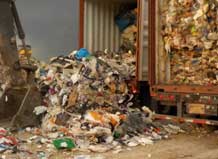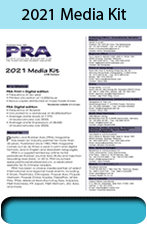MPMA, MPRA reject "inaccurate" Greenpeace depiction on Malaysia waste plastic situation

The Malaysian Plastics Manufacturers Association (MPMA) and Malaysian Plastics Recycling Association (MPRA) decried what it alleged as an unfair projection of Malaysia’s recycling industry in a recent Greenpeace Malaysia report. The organisations jointly rebut the inaccuracy of the report, which likened Malaysia to a “dumping ground”. The report, which they opined, has put the country’s “legitimate and law-abiding” recycling industry in a bad light, only focused on two tears of trade data.
According to them, the report has also missed the bigger picture by zooming into just two years; trade data.
Both MPRA and MPRA emphasised that they support curbing illegal plastic waste imports and illegal recycling operations, adding that they are supporting the Government’s efforts to crack down on unscrupulous and illegal operators, and to protect the environment.
The country needs “ comprehensive solutions to address plastics throughout its life-cycle – from design to waste reduction, recycling to proper disposal at the end of life,” the Associations said, adding that it needs to invest in developing a circular economy.
Plastics recycling could contribute RM15 billion to RM20 billion to Malaysia’s economy.
Malaysian authorities tightened imports by introducing 18 new rules and regulations including inspection at Malaysian ports by SWCorp (Solid Waste and Public Cleansing Management Corporation) to identify illegal plastic waste imports, the joint statement noted.
Following this, the volume of plastic scraps import to Malaysia fell 61% from a peak of 102,0888 tonnes in 2018 to 40,007 tonnes in 2019, a five-year low.
In 2020, as Greenpeace reported, the volume recovered to 65,316 tonnes. But this is still 6% less than in 2016 and reflects the stricter control by the Government.
Meanwhile, the amendment to the Basel Convention which came into effect in January 2021 will further regulate the transboundary movement of scraps globally, according to MPMA and MPRA.
What this means for Malaysia is that only clean, homogeneous recyclable scraps can be imported in a controlled manner while non-homogeneous scraps movement requires prior consent from the Department of Environment (DOE).
(PRA)
Subscribe to Get the Latest Updates from PRA Please click here
©2021 Plastics and Rubber Asia. All rights reserved.

©2020 Plastics and Rubber Asia. All rights reserved.
Home Terms & Conditions Privacy Policy Webmail Site Map About Us














